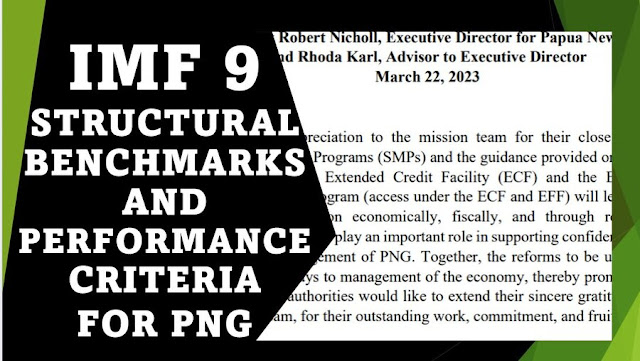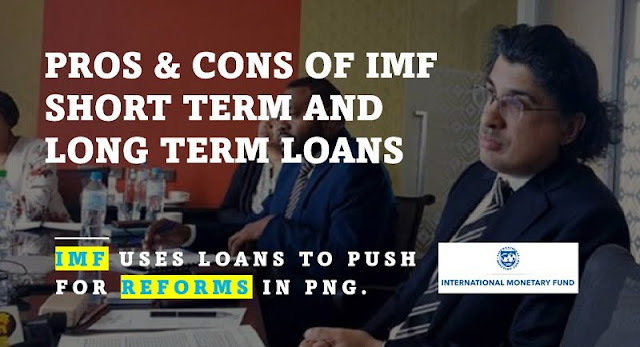A Review of the Statement by Robert Nicholl, IMF Executive Director for Papua New Guinea and Rhoda Karl, IMF Advisor to Executive Director [International Monetary Fund, Asia and Pacific Dept, Country Report No. 23/126, published 29 March 2023]
Download the full report, click here (PDF, 1.7MB)
Introduction
On March 22, 2023, Robert Nicholl, the IMF Executive Director for Papua New Guinea, and Rhoda Karl, Advisor to Executive Director, released a statement that outlines the economic conditions in Papua New Guinea (PNG).
The statement addresses the progress PNG makes in meeting its quantitative and structural benchmarks, and its commitment to continue its economic reforms.
This article provides an overview of the statement, highlights the nine Structural Benchmarks (SBs) and several Quantitative Performance Criteria (QPC) and indicative targets set by the authorities, and outlines the main ideas presented in the statement.
Overview of PNG
PNG is one of the most culturally diverse countries in the world with over 800 different languages spoken among its nine million people.
However, much of the country is covered with rugged mountains and swamps, and access to government services and the formal economy remains a challenge for most of the population.
The vulnerability to climate change and frequent natural disasters presents additional challenges to the country's economic development.
Economic Conditions
The PNG economy is on course to register a strong growth of 4.5 percent in 2022, driven by a strong recovery in the non-resource sector.
Growth is expected to moderate to 3.7 percent in 2023 and converges to potential over the medium term, driven by higher private investment and the government’s public investment program.
Inflation accelerated to 6.6 percent in 2022, but authorities used fiscal and monetary policy instruments to cushion the impact on the cost of living and anchor inflation expectations.
The risks to the outlook for PNG are tilted to the downside due to weaker external demand, tighter global financial conditions, and climate-related natural disasters.
Structural Benchmarks and Quantitative Performance Criteria
The PNG authorities have committed to achieving nine Structural Benchmarks (SBs) and several Quantitative Performance Criteria (QPC) and indicative targets.
The SBs include
- improving public financial management,
- implementing a fiscal responsibility law,
- improving the governance and performance of State-Owned Enterprises,
- strengthening monetary policy and exchange rate frameworks,
- improving the supervision of banks and non-bank financial institutions,
- improving access to finance for SMEs,
- improving data quality and compilation,
- enhancing revenue administration, and
- addressing the systemic and systematic corruption in PNG public service.
- fiscal consolidation,
- revenue collection,
- public debt management,
- inflation,
- international reserves, and
- the balance of payments.
Blended ECF/EFF Financing Program
The financing program builds on the policy objectives of the last Staff Monitored Programs (SMP 2019 & SMP 2022). The IMF-monitored programs were to
- progress further reforms to budget repair and fiscal consolidation,
- improve governance, and
- strengthen the monetary policy and exchange rate policy frameworks while addressing the prospective balance of payments needs.
The program aims to leave PNG in a much stronger position economically, fiscally, and through reduced debt exposure.
Conclusion
In closure, the statement by Robert Nicholl, Executive Director for Papua New Guinea, and Rhoda Karl, Advisor to Executive Director, highlights the progress made by PNG in meeting its quantitative and structural benchmarks and its commitment to continue its economic reforms.
The nine SBs and QPCs outlined in the statement provide a roadmap for PNG's economic development, and the financing program aims to leave the country in a much stronger position economically and fiscally.
Despite the downside risks, the potential for significantly larger LNG revenues and the commencement of new extractive projects offer notable upside risks over the medium term.
Read about the Pros and Cons of the IMF Loan, click here on the IMAGE.




